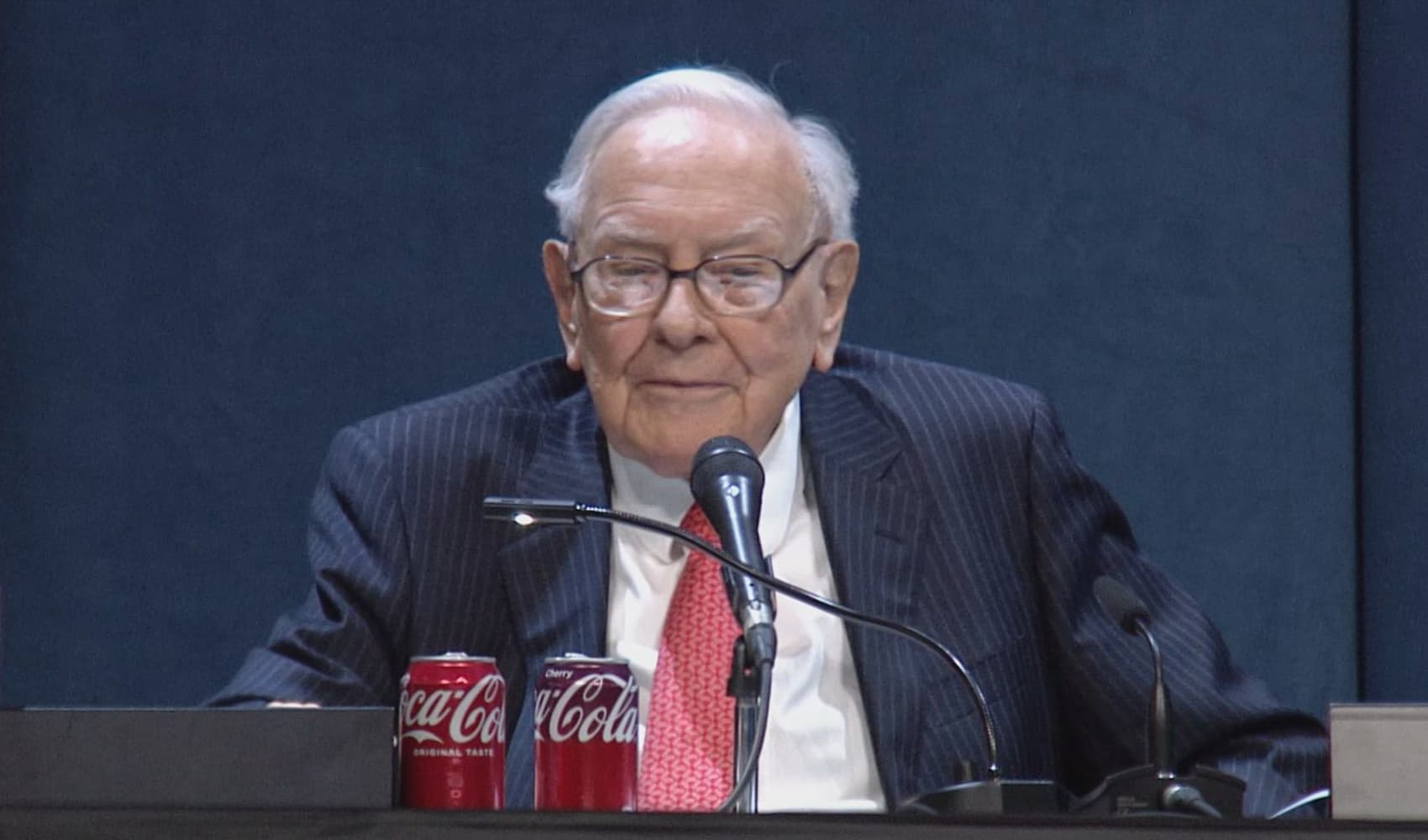Warren Buffett's 6 Investment Secrets Revealed!
Decoding Buffett's Wisdom: 6 Investor Lessons from Berkshire's Annual Meeting
Introduction: What Investors Can Learn From the Oracle of Omaha
The Berkshire Hathaway annual shareholder meeting is more than just a gathering; it's a pilgrimage for investors seeking wisdom from the "Oracle of Omaha," Warren Buffett. This year's meeting, however, held a bittersweet significance. While Buffett, ever the sage, dispensed invaluable advice, he also subtly hinted at his eventual departure, a seismic shift for the company and the investment world. So, what were the biggest takeaways beyond the leadership succession? Let's dive into the six key lessons that investors, both seasoned and novice, can glean from this year's Berkshire Hathaway extravaganza.
1. Succession Planning: A Critical Lesson in Leadership
Buffett's acknowledgment of Greg Abel as his likely successor wasn't just news; it was a masterclass in succession planning. It highlighted the importance of preparing for the future, even when the present seems unshakeable. After all, even the greatest empires need a plan for the next ruler. Buffett's deliberate and transparent approach underscores the need for all businesses, big or small, to have a well-defined succession strategy.
The Importance of Grooming Talent
Why Abel? Buffett clearly values experience and a deep understanding of Berkshire's intricate operations. This emphasizes the significance of nurturing talent from within. It's like training a skilled artisan – the dedication and shared philosophy are invaluable.
Transparency Builds Confidence
By openly discussing his plans, Buffett instilled confidence in shareholders and the broader market. Uncertainty breeds fear, while clarity fosters stability. Investors can learn from this by demanding transparency from the companies they invest in, especially regarding leadership transitions.
2. The Enduring Power of Value Investing: It's Not Dead!
Despite the allure of high-growth tech stocks, Buffett reaffirmed his faith in value investing – buying undervalued companies with strong fundamentals. In a world obsessed with instant gratification, Buffett's patient approach might seem old-fashioned, but his track record speaks for itself. Is value investing really dead, or is it just waiting for its moment to shine again?
Focus on Intrinsic Value
Buffett consistently emphasizes the importance of understanding a company's intrinsic value – what it's truly worth, regardless of market hype. This requires diligent research and a healthy dose of skepticism. Think of it like panning for gold – you need to sift through a lot of dirt to find the nuggets.
Long-Term Perspective: Patience is a Virtue
Value investing is a marathon, not a sprint. It requires the discipline to hold onto investments even when they're out of favor. Buffett's famous quote, "Our favorite holding period is forever," encapsulates this long-term mindset.
3. Navigating Economic Uncertainty: Prepare for Anything
Buffett addressed the current economic climate, acknowledging potential challenges like inflation and interest rate hikes. While he remained optimistic about the long-term future, he also stressed the importance of being prepared for volatility. Are you weathering the storm or getting tossed around by the waves?
Cash is King (and Queen!)
Berkshire's massive cash pile isn't just sitting idly; it's a strategic weapon. It allows the company to capitalize on opportunities when others are panicking. Investors should consider maintaining a healthy cash reserve to weather economic downturns and seize potential bargains.
Understanding Interest Rates
Buffett highlighted the impact of rising interest rates on businesses and investments. A firm grasp of macroeconomic factors is crucial for making informed investment decisions. It's like knowing the tide schedule before setting sail – essential for a smooth journey.
4. The Power of Simple Businesses: Stick to What You Know
Buffett has always favored businesses he understands. He shies away from complex, rapidly changing industries, preferring companies with established business models and sustainable competitive advantages. In a world of complexity, sometimes simplicity is the ultimate sophistication.
Understanding Your Circle of Competence
Buffett famously advises investors to "stay within your circle of competence." This means investing in industries and companies you understand well. It's better to be a master of a few things than a jack of all trades, master of none.
Moats Matter: Seek Sustainable Advantages
Buffett often talks about "moats" – the competitive advantages that protect a company from its rivals. A strong brand, proprietary technology, or a dominant market share can all act as moats. Look for companies with durable moats that can withstand the test of time.
5. Importance of Humility in Investing: Don't Let Ego Get in the Way
Despite his legendary status, Buffett consistently emphasizes the importance of humility. He acknowledges his mistakes and stresses the need to learn from them. Arrogance is the enemy of good investing. The market is always right, and your ego shouldn't cloud your judgment. Are you willing to admit when you're wrong, or do you let your ego dictate your decisions?
Acknowledging Mistakes: Everyone Makes Them
Even Warren Buffett makes mistakes. The key is to acknowledge them, learn from them, and avoid repeating them. As the saying goes, "To err is human, to learn, divine."
Continuous Learning: Never Stop Expanding Your Knowledge
The investment landscape is constantly evolving. Buffett is a voracious reader and lifelong learner. Investors should cultivate a similar mindset, continuously expanding their knowledge and adapting to changing market conditions.
6. Ethical Investing: Doing Well by Doing Good
While not always explicitly stated, Buffett's investment philosophy has always been rooted in ethical principles. He favors companies with strong corporate governance and a commitment to treating stakeholders fairly. He’s an advocate of doing business ethically as a way of creating long-term, sustainable value.
Considering ESG Factors
Environmental, Social, and Governance (ESG) factors are becoming increasingly important for investors. Buffett's emphasis on ethical behavior aligns with this trend. Investors should consider the ethical implications of their investments and support companies that are committed to responsible business practices.
Building Long-Term Value with Integrity
Ultimately, Buffett's success is built on a foundation of integrity. He believes in treating people fairly and building long-term value for all stakeholders. This ethical approach is not only morally sound but also financially prudent.
Conclusion: Embracing Buffett's Wisdom for Investment Success
This year's Berkshire Hathaway shareholder meeting was a treasure trove of investment insights. Beyond the succession news, Buffett reinforced the enduring power of value investing, the importance of preparing for economic uncertainty, the value of simple businesses, the need for humility, and the significance of ethical considerations. By embracing these lessons, investors can navigate the complexities of the market with greater confidence and achieve long-term success. It is safe to say the strategies that led to his success can be replicated by investors today!
Frequently Asked Questions (FAQs)
- What is the single most important lesson investors can learn from Warren Buffett?
While there are many valuable lessons, perhaps the most crucial is to invest in businesses you understand thoroughly. This allows you to assess their intrinsic value and make informed decisions based on sound fundamentals rather than market hype.
- How can I apply Buffett's value investing principles in today's market?
Start by researching companies with strong balance sheets, consistent earnings, and a durable competitive advantage (a "moat"). Look for companies that are trading below their intrinsic value, which can be estimated through careful analysis of their financial statements and future prospects.
- What does Buffett mean by "circle of competence," and how do I define mine?
Your "circle of competence" encompasses the industries and businesses you understand well. To define yours, consider your education, work experience, and areas of personal interest. Stick to investing in companies within these areas, where you have a better understanding of the underlying dynamics.
- How important is it to have a long-term investment horizon like Buffett?
A long-term investment horizon is crucial for success in the stock market. It allows you to ride out short-term market fluctuations and benefit from the compounding effects of long-term growth. It also aligns with Buffett's philosophy of investing in businesses you're willing to hold "forever."
- What is Berkshire Hathaway's current cash position, and why is it so significant?
Berkshire Hathaway typically holds a large cash position, often exceeding $100 billion. This is significant because it provides the company with the financial flexibility to make acquisitions, weather economic downturns, and capitalize on opportunities when others are forced to sell.

